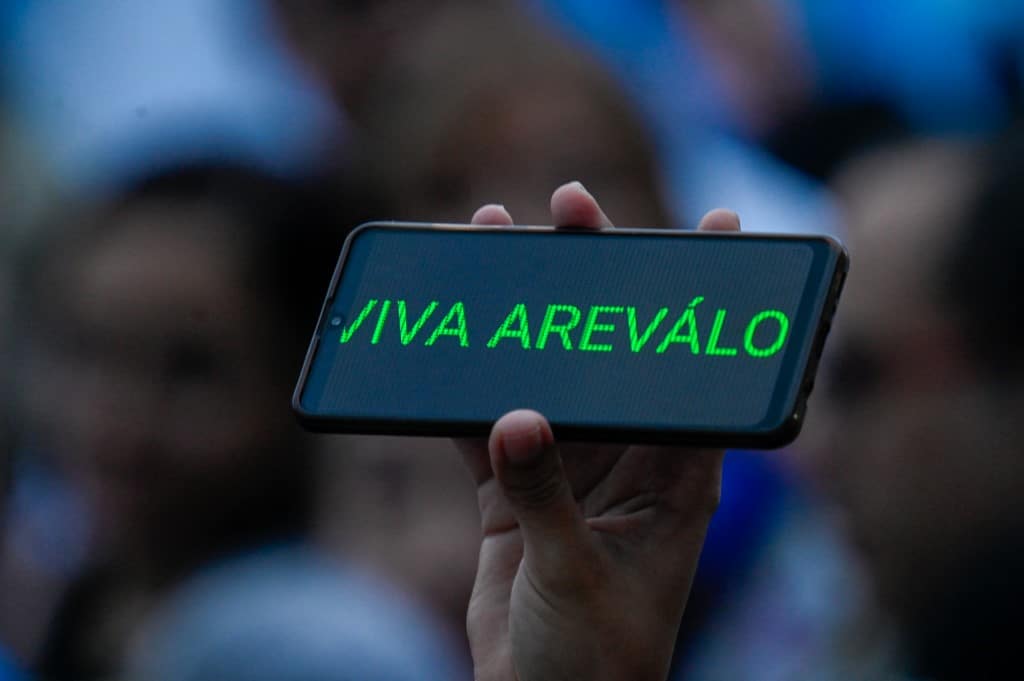Guatemala’s Supreme Court rejected on Wednesday an appeal filed by president-elect Bernardo Arévalo against the decision of three judicial officials who ordered the raid of an electoral center and the opening of ballot boxes.
“By a majority, the Supreme Court of Justice (CSJ) resolved not to decree” the appeal filed by Arévalo on September 13, considering that violations of electoral law were committed, said a judge of the high court, Leonel Marroquín.
Arévalo filed the appeal seeking the Court to dictate measures to protect the election results, as he considered that the raid and the opening of ballot boxes threatened “the principle of purity of the electoral process, the right to elect and be elected and the secrecy of the vote”.
The appeal, filed against Attorney General Consuelo Porras; Judge Fredy Orellana; and the head of the Special Prosecutor’s Office Against Impunity (FECI), Rafael Curruchiche, is part of several legal actions with which Arévalo seeks to stop what he considers a planned “coup d’état” orchestrated to prevent him from taking office on January 14.
With the endorsement of the prosecutors and the judge, officials from the Public Prosecutor’s Office (MP, Attorney General’s Office) raided the Electoral Process Operations Center (Cope) on September 12 and opened several boxes with votes cast in the first round of June.
The three judicial officials have undertaken a crusade against the results of the general elections, against Arévalo’s Semilla party and the magistrates of the Supreme Electoral Tribunal (TSE).
Arévalo, 64, surprisingly won the second round of elections on August 20 to assume the presidency of a country plagued by rampant corruption, impunity, gang violence and poverty.
He won against former first lady Sandra Torres, close to the ruling party and the powerful business elite allied with the government, which according to analysts is alarmed by Arévalo’s promise to fight corruption.
No solution to the crisis
The president-elect sought “to guarantee the purity of the electoral process, protect the declaration of results, especially protect the electoral material,” said Edie Cux, director of the NGO Citizen Action, local chapter of Transparency International.
Cux considered that with the denial of the appeal “the Supreme Court does not guarantee the violated rights, does not provide a solution or legal certainty for the protection of the constitutional rights of the vote and election results.”
The Court “evades the responsibility of continuing with the process, does not provide a solution to the whole crisis that is being generated by that violation committed by the Public Prosecutor’s Office by violating the electoral material,” he stated.
For the third consecutive day, indigenous people blocked several routes in Guatemala on Wednesday to demand the resignation of Porras, whom they accuse of leading the alleged coup d’état.
The blockades began on Monday after the electoral court headquarters was raided to seize minutes of the elections.
“What I see now looks like a slow motion coup d’etat,” Arévalo said Tuesday in English, during a non-partisan forum at the Wilson Center in Washington.
The actions of Porras, Orellana and Curruchiche, included in a US list of “corrupt actors” and anti-democratic actors, have caused international concern and rejection.
The Organization of American States (OAS), the European Union (EU) and international organizations warned that democracy and governability in Guatemala are being threatened.
The president-elect is the son of Juan José Arévalo, Guatemala’s first democratic president (1945-1951).






